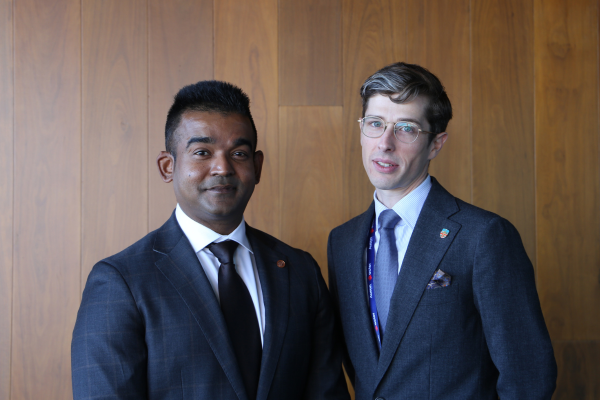About
MEGA-HEART study shows the way to improve brain and kidney health outcomes after heart surgery
- Home
- About
- Latest news
- MEGA-HEART study shows the way to improve brain and kidney health outcomes after heart surgery

4 April 2025
Every year, over 2 million patients undergo cardiac surgery to improve their heart health; however, while cardiac surgery requiring the heart-lung machine saves lives, it can also cause brain and kidney problems in many patients.
Lead investigator Professor Yugeesh Lankadeva, Head of Critical Care Research at The Florey, said up to half of all heart surgery patients experience postoperative delirium and 30 per cent of patients have acute kidney injury.
“Many people wake from life-saving heart surgery in a confused, forgetful and disturbed state. And many experience minor to severe kidney problems,” Professor Lankadeva said. “These issues can lengthen or complicate recovery or may even prove fatal in some cases - yet no therapies are available.”
The MEGA-HEART project has been made possible through extensive preclinical research. The study, led by researchers at Florey and the University of Melbourne, are teaming up with clinical specialists at hospitals across Victoria and South Australia to test a revolutionary new treatment with the goal of reducing brain and kidney injuries.
Austin Health Head of Anaesthesia Research and clinical lead of the MEGA-HEART project, Associate Professor Lachlan Miles, said delirium and acute kidney injury after heart surgery can make an already challenging recovery considerably more difficult.
“Brain and kidney injury do not discriminate and can happen to anyone undergoing one of these life-saving heart surgical procedures,” he said.
“Developing a therapy that prevents these common complications could be the biggest development in peri-operative heart surgical care in the last 25 years. It’s a tremendously exciting time to be working in this space, and a privilege to be able to help move this therapy from the bench to the bedside.”
Dr Simon Iles, an intensive care doctor at Royal Melbourne Hospital, shared his own experience with cardiopulmonary bypass to highlight the importance of such research. After undergoing heart surgery at 28 due to a congenital heart condition, he suffered memory loss, personality changes, and a difficult recovery period. “After surgery, you’re a different person for a while,” he said. “I support this research because it aims to prevent the kind of challenges I faced.”
The clinical trial will recruit patients and involve perioperative and critical care physicians from Austin Health, the Victorian Heart Hospital, The Alfred, Royal Melbourne Hospital and Royal Adelaide Hospital.
The MEGA-HEART project has received a $4.9 million grant from the Australian Government’s Medical Research Future Fund (MRFF). The project has also been supported by the National Heart Foundation of Australia.
MEGA-HEART involves researchers and clinicians from The Florey, University of Melbourne, Austin Health, Monash Health, Royal Adelaide Hospital, Alfred Health, Monash University, St Vincent’s Hospital Melbourne and The Victorian Heart Hospital.


